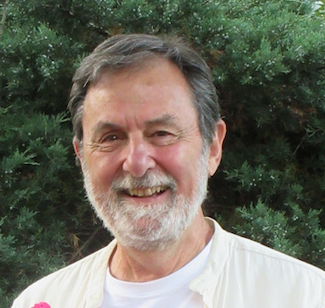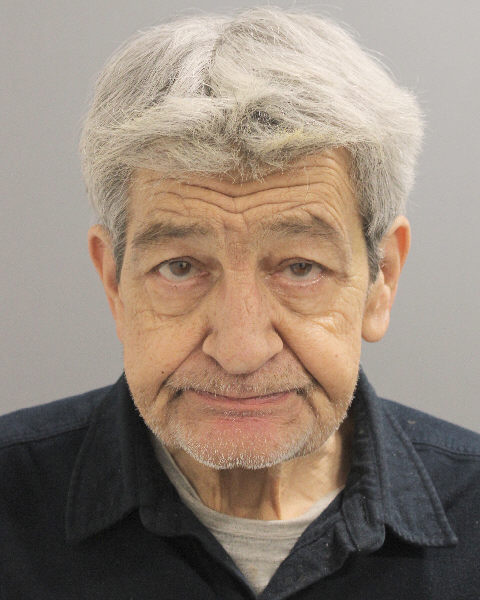Dr. Arthur Dobrin of Westbury, 77, was vindicated, but feels like it’s only a partial victory.

The federal Economic Employment Opportunity Commission (EEOC) ruled on March 28 that Hofstra University discriminated against the professor emeritus when it denied his request to teach remotely. The ruling charged the university with violating his rights because of his age and disability. The office specifically cited aspects of the Americans with Disabilities Act of 1990 (ADA) and the Age Discrimination in Employment Act (ADEA).
As the pandemic ravaged the country in the summer of 2020, Dobrin, who had spent 32 years at the university and had been retired from full-time teaching since 2013, was preparing his Media Ethics course for the fall semester. He had taught it every semester for seven years.
In his complaint to the EEOC the adjunct professor wrote, “After creating the syllabus, arranging for guest speakers and communicating with students who were already registered for my section, I was informed that the course must be taught in-person. I proposed that my section be a distance learning class. That was rejected our of hand, although my spring class successfully had ended on Zoom. The at-distance alternative would not be discussed. A medical accommodation was irrelevant. This is an unreasonable and unethical stance. My class was one of three sections on media ethics and it could have presented as the section for those students who would choose not to return to campus.
He added: “Hofstra allows student to opt our of distance learning, but they have not offered that option to me, despite the explicit letter from my physician stating that I should not be in a classroom in the fall. Many teachers fear returning to the classroom, and to its credit, Hofstra has worked hard to make the campus as safe as possible. However, it is not advisable for everyone to return. Faculty shouldn’t be given less considerations than that given to students.”
Dobrin’s attorney, Thomas F. Liotti, called it a “clear case of age discrimination for medical reasons. My client is highly qualified. There is no legal basis for Hofstra’s actions.”
Hofstra argued that Dobrin’s “request to teach remotely was denied because teaching an introductory level course in person is an essential function of his position” and “was unreasonable and could not be accommodated.” It added that the decision “had nothing to do with his age.”
The EEOC charged that Hofstra’s response “does not withstand scrutiny. [It] failed to engage in an interactive process and denied him an accommodation, in violation of the ADA.”
A spokesperson for the university provided the following response: “Hofstra is committed to providing equal employment opportunities and takes its obligation to provide reasonable accommodations to employees with disabilities seriously. The university denies any wrongdoing. This case is still pending, and the university will not comment any further.”
According to the EEOC’s decision, “This determination is final. The statute requires that, if the Commission determines that there is reasonable cause to believe that violations have occurred, it shall endeavor to eliminate the alleged unlawful employment practices by informal methods of conference, conciliation, and persuasion. Having determined that there is reason to believe that violations have occurred, the Commission now invites [Hofstra] to join with it in an effort toward a just resolution of this matter. Enclosed is a letter outlining the proposed terms of conciliation.”
The letter of conciliation was not available for review.
“They have refused to [enter into conciliation],” Dobrin said. “So the next step is that we have to take them to [federal] court. Why Hofstra is doing this is beyond me. They’ve already hired an outside counsel [Farrell Fritz of Uniondale].”
Since the EEOC has no enforcement mechanisms, according to Liotti, Dobrin will seek relief in the federal courts. He will be represented by Edward Paltzik of New York City.
(Editor’s note: The published version of this story, in the May 10 edition of the Nassau Illustrated News, incorrectly named Harry Kutner Jr. of Garden City as Dobrin’s lawyer.)
Observed Dobrin, “I don’t hold it against the university. I just think that the people who are doing this are being petty, stupid and vindictive. I don’t know who made that decision. Probably somebody in the legal department.”
Dobrin is unsure if he would return to part-time teaching if the university asked him. He got high marks from the site Rate My Professor, he said. Seventy respondents gave him the top score, a 5 (“Awesome”) and 84 percent would take his class again.
He noted that he had continued to be employed under the terms of the collective bargaining agreement as an adjunct, and “I had seniority in that department and for them not to ask me back every semester is a violation of my contract.”






























